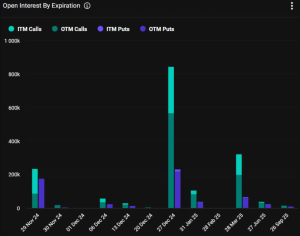[Featured Content]
Every sixth death in the world is due to cancer, making it the second leading cause of death globally, and the numbers are increasing.
In 2020, 9.9 million people were estimated to have died from various forms of cancer, compared to 5.7 million in 2000, which is an increase of 66% in under 2 decades. Treatment of other forms of death has effectively improved in comparison to treatment for cancer.
Cancer was first recognized in Ancient Egypt. Once the microscope became widely used in the 18th century, it was discovered that cancer spread from its original tumor to other parts of the body.
In 1902, the genetic method by which cancer spreads was discovered by a German biologist. The American Cancer Society was founded in 1913, and the United States government alone has spent over $200 Billion on cancer research since 1971. Despite the progress, the burden of cancer and its uniform cure remains an evasive challenge to our world, as there are many hurdles for those seeking to resolve this, from misinformation to slow drug discovery.
One of the main challenges relates to cancer research and access to patient data which is critical in cancer research and therapy. Clinical trials are one part of this, where patients are enrolled into phase 2, 3, or 4 trials to test the safety and efficacy of each therapy. However, the more stages of drug discovery that involve insights using patient’s real-world data (RWD), the more accuracy and speed can be brought to the process.
However, this isn’t as easy as it sounds. There are several barriers to accessing patient’s data, either through clinical trials or directly from patients. Patients may feel uncomfortable being under observation, or may not want to undergo additional visits to doctors.
For researchers, finding the right group of patients with a diverse enough representation is tricky, and can be a labor-intensive process. Furthermore, when accessing patient’s data directly from them (e.g. lab reports, doctor’s letters), security and anonymity become a major concern.
The Solution
OncoCoin provides a new way to address these challenges by leveraging blockchain technology to power an ecosystem of data-sharing and patient empowerment.
The ecosystem serves as a facilitator by offering an infrastructure through which patients may submit existing data from the comfort of their homes and researchers can seek information that will aid in drug discovery.
The OncoCoin ecosystem is a first-of-its-kind. It contains features that encourage patients to be motivated and get rewarded for their contributions, with free access to much-needed services which empower them through their cancer journey, as well as a reward for data in the form of the OncoCoin token.
Building an International Community Through Tokenization
OncoCoin is set to unfold a new world by creating new ideas to generate better experiences for patients and cancer researchers.
OncoCoin aims to facilitate an equitable method of data sharing, giving value to data, allowing patients and investors to participate in the value brought by their data.
The OncoCoin tokens (which are in the Binance Smart Chain) can be used to purchase services in the app, such as a second opinion.
OncoCoin’s token incentives will support a platform that allows patients to take control of their cancer journey and accelerates the development of new therapies. This will contribute to the development of a worldwide community of patients, as well as the generation of a more varied data pool for researchers and the reduction of impediments to international exchanging data and information requests.
The CURIA app: Empowering Patients with Unbiased Information
A crucial part of the OncoCoin ecosystem is the Curia app. Curia was born as an idea with the mission to support cancer patients seeking help in order to find the right information about their options through their treatment journey. With that purpose, the Curia app was created to bring current, accurate and relevant information to cancer patients.
Additionally, if a patient is looking for resources for a second opinion, they can use the app to connect with an entire network of healthcare professionals. In the future, patients will also be able to access digital therapeutics and other third services through the OncoCoin ecosystem. The app launched in June 2020 and is available across Europe and India and is rapidly growing into new countries.
OncoCoin Aims to Democratize Drug Discovery
Security and privacy of personal medical data is a concern for most patients. OncoCoin supports that patients should be given control over their data and the option to decide where their data goes or who sees it. Through its open-source blockchain ecosystem, alongside at-source anonymization, OncoCoin will ensure its patients maintain peace of mind that the data is collected in a very secure and transparent manner.
- Patient engagement: Through the Curia app, patients access the resources and information they need to make crucial decisions about steps in their journey through cancer therapy.
- Access to valuable data: By using blockchain and encryption, patients can license their existing information to research projects and accelerate drug discovery for researchers
- Faster outcomes for patients: By making it easier to involve patients at all stages of the drug discovery process, insights are kept on track, meaning less time wasted on incorrect insights.
- Support cancer care, globally: Curia is being made available globally, and with a branch out to developing countries, will help improve cancer care across the world.
- Equitable investment: OncoCoin will be tradable on the secondary market, allowing everyone to contribute to cancer research, and see returns not only for cancer care but in their own portfolio
OncoCoin is building a new world of possibilities for patients to be involved in their cancer journey, and drive cancer research. Blockchain and tokenization is enabling all stakeholders to be involved in a democratized drive for a cure for cancer – who knows where the potential of these technologies will take us next.






















